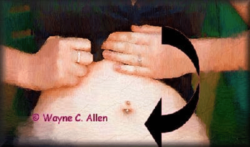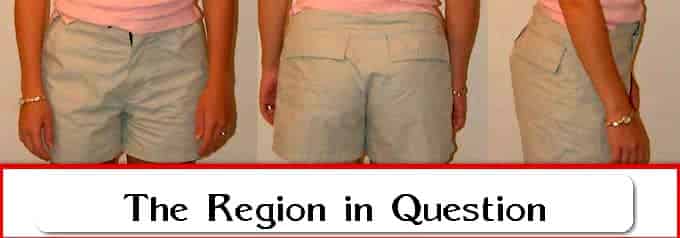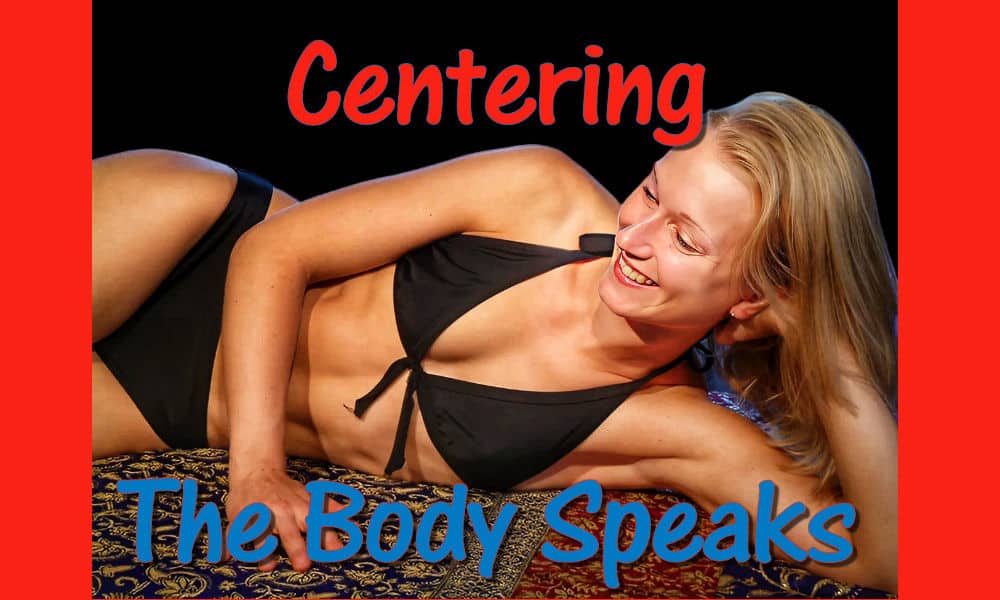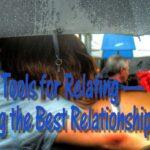Centering — the core of yourSelf is anchored in your belly. Here are some ways to work with this area.

Psst!! Hey!!!
** Want more great writing designed to help YOU to shift your behaviour?
** Want to learn how to find, build or deepen your principal relationship?
** Want to know more about Zen living and being?
Check out Wayne’s books! (amazon link)
Or, check them out right on our site.
It’s all about Relating
Darbella and I were having a conversation about relationships and passion for life with friends yesterday, and I was intrigued as we talked, as much of what is in this article got covered as we talked.

a.k.a. the Second Chakra
This morning, an image popped into my head: of the Lower Dan Tian — in Chinese medicine this spot 2 inches below the navel — it’s also the 2nd Chakra area. I thought, “This spot is so central, so “core” to us, and this region is so “ignored.”
There are three important aspects to this region:
1) Relating,
2) Passion for Life,
3) Sexual Passion (and sacred sexuality.)

The entire region (the lower belly around to the lower back) is broadly defined as the “Relationships Region,” and that’s where we’ll begin.
This article will look at the relating aspect.
I want to spend some time persuading you that relating is “all about totally owning your perspective on things.” In other words, we’ll explore your relationship with how you “do” relating.
The region has a distinct front / back component.
The front pelvis and lower belly is about sexuality and sexual passion /energy, and
the lower back, from the waist down, is about passion for life.
This front / back pair will be covered separately in the next two articles. The same rule applies—we’ll look at how you relate to your sexuality and how you relate to your passion for life.
Relating With Others—The Dance of Relating
Developmentally, one of the first thing a baby “does” is ground herself. In the context of human development, the first “eye opener” is realizing you are outside of mom, and that now, you need externals (food, shelter, etc…) to survive.
Once this realization of “baseline existence” is internalized, relationship-building begins. This starts a few months after birth, because initially, babies are quasi-autistic and still enmeshed with mom.
Building relationship (an activity, so better put: relating) means that the infant begins the project of “me / not me,” which is the basis of survival, differentiation, and starting the next step: the development of a self / ego.
Initially, Relating = Socialization
As the infant begins the differentiation (me / not me) process, she discovers the expectations of others. (Remember, it took her a couple of months to realize that there actually are others.)
The first learning is this:
in order to get what I want, I have to do what the “big people” want me to do. Thus, relationship seems to be about “behaving” and being rewarded.
For example, “Susie” may cry. In rushes mommy with a breast or bottle. If Susie fusses while feeding, mommy may become cross, take the food away, or emotionally “cut off” her child, so Susie learns to be “happy-acting”—her needs are more easily met if she does what mommy wants.
Infants and children have nothing to compare their learnings to. So Susie is not sucking away and thinking, “Boy, is my mommy neurotic. Look at what a girl has to do to get her tummy filled!” No, she’s learning to “relate” by looking outside to see how “mommy” is, modifying her behaviour to make mommy happy, and learning that the only way to get fully fed is to manipulate others and the situation.
We call this inner/outer confusion.
Sadly, most adults will read the above and think that’s how one relates. You ask, demand, cajole others into giving you what you want, as opposed to being self-actuated and self-responsible.
Next, the kid tosses in the “Kreskin” (mind reading) part. “Mommy” was pretty good at meeting your unspoken needs (you squawked a bit and a bottle or boob appeared… like magic), so you may still think that if someone loves you, they “ought to” be able to read your mind. Or, that you “ought to” be able to state your need or desire one time, and get your way from that point on.

Let me unpack. Inner / outer confusion is this:
I think about or want something, and I expect the external world to provide it. “I’m not happy, and you should change things or yourself, so I can be happy.“
Or, “Can’t you see how hard I am trying to make you happy, so that you’ll “feed me” what I want?”
Dysfunctional relationships are caused by clinging to infantile ways of relating. Every time I see a couple playing this “externals caused what I feel / externals should be different” game, I see three-year-olds fighting in a sandbox.
Stability comes from authentic relating
What I want you to understand is that the stability we are talking about could also be described as acceptance. Simply put: “I accept that the way I am, is the way I am, right now. If I want a different experience, I accept the responsibility for creating it…through the way I choose to relate with others.”
Vibrant Relating comes from Self-acceptance and Self responsibility
From a Buddhist perspective, the unsatisfactoriness of life is due to clinging—and what we cling to is an attitude, belief or object. We want more, more, more of what we like, and less, less, less of what we don’t.
We spend our entire existence wishing for what isn’t—
wishing that we could control the flow of our experience
by demanding that things (and others) become, and then stay, forever,
the way we want them to be.
Mark Epstein, has a book called “Going to Pieces Without Falling Apart.” Let me toss out a quote.
“But once we start to appreciate how it is the holding on to pleasure and the pushing away of pain that is the problem (not pleasure and pain themselves), we start to see how it is possible to practice in the midst of our daily lives.”
Page 141
And let’s face it, the attraction / repulsion we feel for our passion, for people we want intimacy with, and for our sexuality is perfectly described in this quote. Instead of acceptance, we engage in an endless dance of grasping onto and pushing away.
Relating is an action
So, how do we get into trouble? We get into trouble by confusing how we relate (an action) with having a “relationship” (a static thing.)
Example: Mark and Sally come in for therapy and to want to talk about “the relationship.”
I would look at them while putting a quizzical look on my face. I’d say, “Relationship? I don’t see a relationship. I do see Mark and Sally engaging, or relating with each other. We can’t talk about your relationship as if it’s separate from how each of you relates to the other.”
Thus, relating is about how you enact your life; how you relate to what is around you.
What is your behavior, how do you relate, to your nearest and dearest?
The useful approach is to let go of clinging to labels, having judgements, and demanding that others change so that you can be happy. You own your experience, your feelings, and your actions. You see each thought and action as it is—a moment and a behavior in the here and now.
Here are some ways to enact this as you relate:
Express Your Stuff–Don’t Stuff it

time you’re angry,
shove it in here!”
It all starts with expressing your feelings and emotions. Fully.
When you were a tyke, you squawked and in rushed the big people, and made it all better.
As time went by, mom and dad trained you not to be annoying by getting you to shut up. They taught you to justify (and you seldom could) and then stuff your emotions.
Since childhood, your emotions have been internalized. They feel like pain and pressure, and you still want someone to rush in and rescue you from them, preferably without you having to say a word.
Grow up and get over it.
Your emotions are real, are yours, and are self-created. They need to be owned, (“I am angering myself”) and safely expressed.
Use “I” Language—All The Time!

“Of course I’m being responsible! I’m responsible for pointing out how it’s all your fault!”
The bane of successful relating is the pronoun “you”—with or without the finger-pointing. Many are the justifications: “Normally I’d use “I language,” but this time you really went too far, and you’re ruining my … my… tranquility! Change! Now!”
The only use of “you” is for reporting an observation—
“I notice you got home at 7pm four times this week.”
Then, it’s all “I language”—
“I notice that I am concerning myself, and I am making myself angry, because I am choosing to feel isolated and alone. Here is what I would like to do differently…”
All you can ever report on is your internal experience of what you think is happening. It’s not true, it’s not real. My favourite way of stating this is to preface my comments with, “So, the story I am telling myself…”
You must adopt “I” language, all the time, no matter what, no matter how hard-done-by you are making yourself feel.
Ask For What You Want
Hint: You are not a prince(ess) being served by a court of lackeys. No one has a clue what you need this time. Stop setting people up for failure.
Many are the dramas that come from “If you loved me, you would know what I want,” or, “I’ve told you in the past not to give me advice.”
I’ve certainly been guilty of rushing in with advice for Darbella, and for a year or two she would preface every story with, “I want to tell you about a stressful situation, and all I want you to do is to listen.”
Of course, I had the option of discounting what she wanted, and I could have charged in with advice. But I live by the premise that I am not in relationship with Dar to fix her. I’m here to learn about her, and to tell her about me. Period. She’s an adult, and highly competent, and quite capable of fixing her own stuff. What she wants, what I want, is someone to vent with, someone to “simply listen.”
If you think you’re not getting what you want as you relate, ask yourself, do you ask? Drop the magical thinking, prince(ess), and start.
Be willing to hear “no,” and expect mostly to hear “yes,” and you’ll begin to get what you want.
Work on Each Other

Find a Bodyworker, or take a Haven course, and learn to breathe together, and learn to do effective Bodywork on each other.
I find that, when I simply pay attention to Darbella, I can “see” her holding patterns. We’ve made a “deal” with each other. When we see a holding pattern, we have automatic and universal permission to reach out and apply Bodywork pressure, while saying “Breathe! Let it out!”
We do this with each other, all the time. It’s often noisy, teary, and filled with emotion. And then, it’s over, and life shifts. The emotion is released, and we have danced together. We don’t even have to discuss “what just happened,” because it’s just “stuff that was unstuffed.” No justification, excuses or explanations required.
Endlessly Let Go

Most people in our culture tend to hold on to their “crap.” Past hurts (stories they tell themselves, not real…) past disappointments, all kinds of imaginary dramas, all are tenaciously clung to.
And many people in our culture are constipated—the medical version of holding onto the festering stuff that is better “dumped.” (Noticing the language???)
What do you hold on to? How much crap, old, old stuff, do you harbour, cling to?
Let it all go. I know. Hard. Until you do it. Then you see, and experience, freedom.





